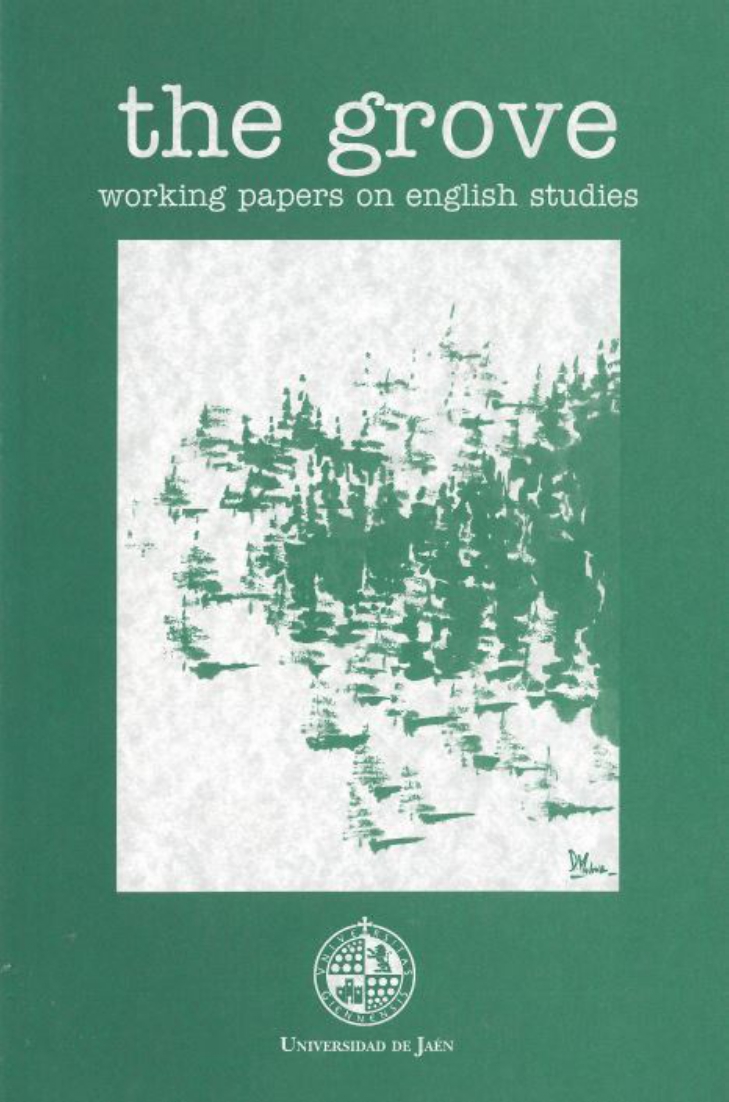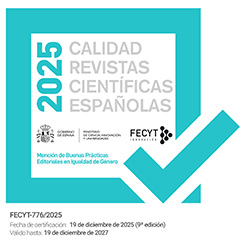Guy Butler's Demea
a South African Princess against Apartheid
DOI:
https://doi.org/10.17561/grove.v29.6658Keywords:
Postcolonial drama, myth criticism, Medea, Demea, Guy Butler, apartheidAbstract
While the relation between classical mythology and postcolonialism may appear as an inconsistency, many postcolonial writers identify postcolonial issues in the literary reception of the classics, and look back to classical mythology and their own precolonial myths to gain a better understanding of their present. In the intersection of myth criticism and postcolonialism, this article discusses Guy Butler’s Demea, a postcolonial drama written in the 1960s but, due to political reasons, not published or performed until 1990. Butler’s play blends the classical myth of Medea with South African precolonial mythology, to raise awareness of the apartheid political situation, along with gender and racial issues.
Downloads
References
Bhabha, Homi. The Location of Culture. Routledge, 1994.
Bhabha, Homi. “Signs Taken for Wonders.” The Post-Colonial Studies Reader. Ed. Bill Ashcroft, Gareth Griffiths, and Helen Tiffin. Routledge, 2003, pp. 29-35.
Beck, Roger B., The History of South Africa. Greenwood Publishing Group, 2000.
Breede, Heidi. “Reimagining History to Alter the Future: Demea’s Interrogation of Two Colonial Ideologies.” Praxis, 2016. https://praxis.journals.villanova.edu/index.php/praxis/article/view/1963. Accessed 5 Nov. 2022.
Butler, Guy. Demea: A Play. David Philip Publishers, 1990.
Campbell, Collin T., British South Africa. John Haddon, 1897.
Cohen, Derek. “Apartheid at the Edges.” Sewanee Review, vol. 118, no. 4, 2010, pp. 542-60. https://doi.org/10.1353/sew.2010.0045
Enoch, Wesley. Black Medea. Contemporary Indigenous Plays. Ed. by Larissa Behrendt. Currency Press, 2007.
Euripides. Medea. Translated by C. A. E. Luschnig. Diotima, 2006.
Gilbert, Helen and Joanne Tompkins. Post-Colonial Drama: Theory, Practice, Politics. Routledge, 1996.
Goff, Barbara. Classics and Colonialism. Ed. Barbara Goff. Duckworth, 1995.
Hall, Edith, Inventing the Barbarian: Greek Self-Definition through Tragedy. Clarendon Press, 1989.
Hardwick, Lorna. Classics in Post-Colonial Worlds. Eds. Lorna Hardwick and Carol Gillespie. Oxford University Press, 2007. https://doi.org/10.1093/acprof:oso/9780199296101.001.0001
Johnston, Sara Illes. “Corinthian Medea and the Cult of Hera Akraia.” Medea: Essays on Medea in Myth, Literature, Philosophy, and Art. Eds. James J. Clauss and Sarah I. Johnston. Princenton University Press, 1997, pp. 44-70. https://doi.org/10.2307/j.ctv10vm25j.7
Kekis, Olga. Medea Adapted: The Subaltern Barbarian Speaks. Doctoral dissertation. University of Birmingham, 2009.
Luschnig, C.A.E. trans. Euripides. Medea. Diotima, 2006.
Mbiti, John, “The Role of Woman in African Traditional Religion.” Cahiers des Religions Africaines, vol. 22, no. 3, 1988, pp. 69-82.
Moraga, Cherríe. The Hungry Woman: A Mexican Medea. West End Press, 2001.
Myers, Steven C. “Traces of Identity: Myth and Monument in the New South Africa.” Intersections, vol. 10, no. 1, 2009, pp. 647-80.
Olson, James Stuart, The Peoples of Africa: an Ethnohistorical Dictionary. Greenwood Press, 1996.
Thurman, Chris J., Guy Butler from a Post-Apartheid Perspective: Reassessing a South African Literary Life. Doctoral dissertation. University of Cape Town, 2007.
Wertheim, Albert, “Euripides in South Africa: Medea and Demea.” Comparative Drama, vol. 29, no. 3, 1995, pp. 334-47. https://doi.org/10.1353/cdr.1995.0009
Published
Issue
Section
License
Copyright (c) 2022 Marta Villalba-Lázaro

This work is licensed under a Creative Commons Attribution 4.0 International License.
Authors who publish with this journal agree to retain copyright and grant the journal right of first publication with the work simultaneously licensed under a Creative Commons Attribution License that allows others to share the work with an acknowledgement of the work's authorship and initial publication in this journal. Also, authors will retain the rights on their work, even if they will be granting The Grove. Working Papers on English Studies a non-exclusive right of use to reproduce, edit, distribute, publicly communicate and show their work. Therefore, authors are free to engage in additional, independent contracts for non-exclusive distribution of the works published in this journal (such as uploading them to an institutional repository or publishing them in a book), as long as the fact that the manuscripts were first published in this journal is acknowledged.

























